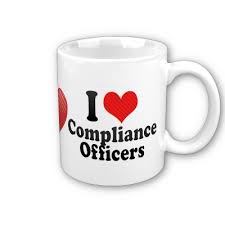Healthcare Compliance and Chief Compliance Officers
 “If we were supposed to talk more than listen we would have been given two mouths and one ear.” – Mark Twain
“If we were supposed to talk more than listen we would have been given two mouths and one ear.” – Mark Twain
Sometimes people do not listen. Mark Twain knew what he was talking about. People like to talk instead of listening. I try to teach my kids this point. But people (and my kids) think they know better.
Change is hard. I know that and I am patient. But something is really amiss when it comes to the healthcare industry.
The industry has a rich history in compliance. Healthcare companies have years of experience in responding to aggressive government enforcement. This is not a new trend and only will continue as the government role in healthcare will continue to increase.
But the industry has been slow to recognize the importance of empowering Chief Compliance Officers. It is a black mark on the industry and unless the trend changes there will be serious consequences. HHS has made it clear that it expects companies to create an independent CCO, allocate sufficient resources to compliance, and provide direct access to the board of directors.
The government in all of its settlements requires healthcare companies to separate the CCO from the legal office and then adequately fund the compliance office. In a 2010 survey, the Healthcare Compliance Association found that 20 percent of responding companies housed the CCO outside of the general counsel’s office. (Interestingly, the 2010 HCCA survey found that there was little prospect that the industry would change the role of CCOs in its organizations).
But that is only the first question to be answered – the second, and more important question, is what authority and resources has been given to the CCO? My answer to this, which admittedly is based on anecdotal evidence from clients, contacts and others in the industry, is that the healthcare industry has a dismal record in empowering CCOs within the organization.
Why has the industry been slow to respond? Why are legal officers continuing to wear two hats – legal and compliance? Why are Chief Compliance Officers continuing to report directly to legal officers? Why are Chief Compliance Officers suffering from backwater authority and inadequate resources?
If you follow this issue, financial institutions, Fortune 500 companies, and others are embracing change and empowering CCOs. They recognize the immediate improvement to compliance, the clear message that CCO empowerment sends to a company, and the importance of such a structural change to a culture of compliance.
There are too may CCOs working at hospitals, subservient to legal officers, and with limited resources and a restricted mandate to ensure compliance. Hospitals are prime culprits when it comes to this issue.
 The Justice Department already has announced its intention to focus civil and criminal enforcement against hospitals. Instead of responding to this clear risk; hospitals are sitting on their hands and waiting for the bomb to drop.
The Justice Department already has announced its intention to focus civil and criminal enforcement against hospitals. Instead of responding to this clear risk; hospitals are sitting on their hands and waiting for the bomb to drop.
It is unfortunate but sometimes change only occurs after organizations are prosecuted and individuals are sent to jail or excluded from the industry. I have seen this television show all too often, a company sits on its hands, waits and then suffers devastating consequences. The management team is quickly cleaned out and a new team is brought in with the message to make sure compliance is a priority. Hopefully, the healthcare industry will wake up and address this issue.















